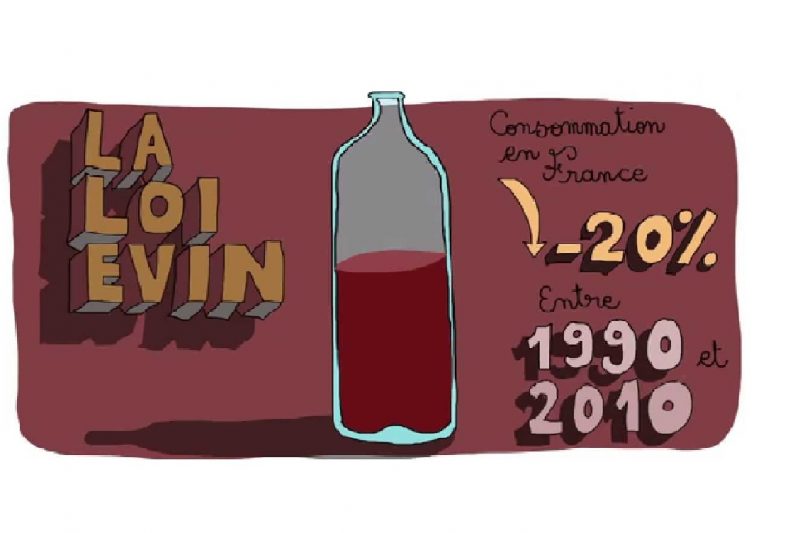Much has been said about the Evin Law and its effect on the wine trade.
At the risk of arousing the ire of temperance societies, I would like to look back to a decision little commented on at the time and which borders on the absurd, not for its legal implications, but for the basis on which it was taken.
 What happened was that the Court of Appeals, in a Judgement of 23rd February 2012, found in favour of the National Association for the Prevention of Alcoholism and Addiction (ANPAA) which had sued the Council of Professionals of Bordeaux Wines (CIVB) for its 2005 advertising campaign.
What happened was that the Court of Appeals, in a Judgement of 23rd February 2012, found in favour of the National Association for the Prevention of Alcoholism and Addiction (ANPAA) which had sued the Council of Professionals of Bordeaux Wines (CIVB) for its 2005 advertising campaign.
So what was it all about? Simply the poster featured above, created by Jean Marie Perrier, showing a man and woman, young and goodlooking, each with a glass of wine in their hands. The slogan was a fairly sober: “Bordeaux – the people to discover” and underneath that “Drink less. Drink better.”
The Court of Appeals considered that: “The said poster… promotes an image of conviviality associated with Bordeaux wines of a nature to incite the consumer to partake of the products shown.”
One might well wonder how the wine sector will manage its publicity in the future. Because by its very definition the aim of any publicity is to incite or encourage the consumer to partake of or buy products. What are they saying is wrong then with this campaign? Is it the conviviality engendered because these two are young, beautiful and smiling? May we deduce that the decision would have been totally different if CIVB had shown an old and decrepit couple with repulsive faces? We’ll never know!
All the same and perhaps without realising it, some campaigns with the same goal have managed to escape the not so tender ministrations of the Court of Appeals, thanks to humour and a tongue in cheek approach. To give you just two of the best known, have a look at the Chateau La Levrette video and the no less humorous video from usb-wine. You might believe conviviality has no place in the first video and the second is just too absurd to be an incitement!
Finally, it has to be said that in promoting the estate rather than the wine perhaps wine growers can free themselves in future from any such legal constraints. Certainly it seems that many among them are taking steps to achieve this inversion of traditional methods of wine advertising – by featuring the chateau and not so much the wine.

